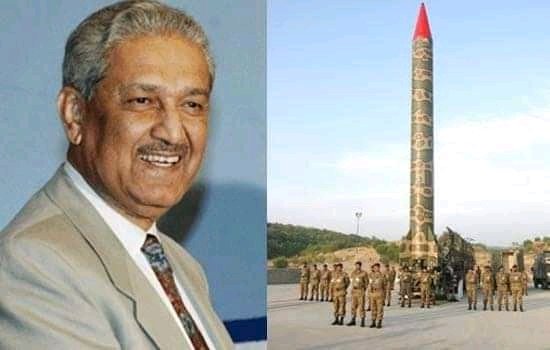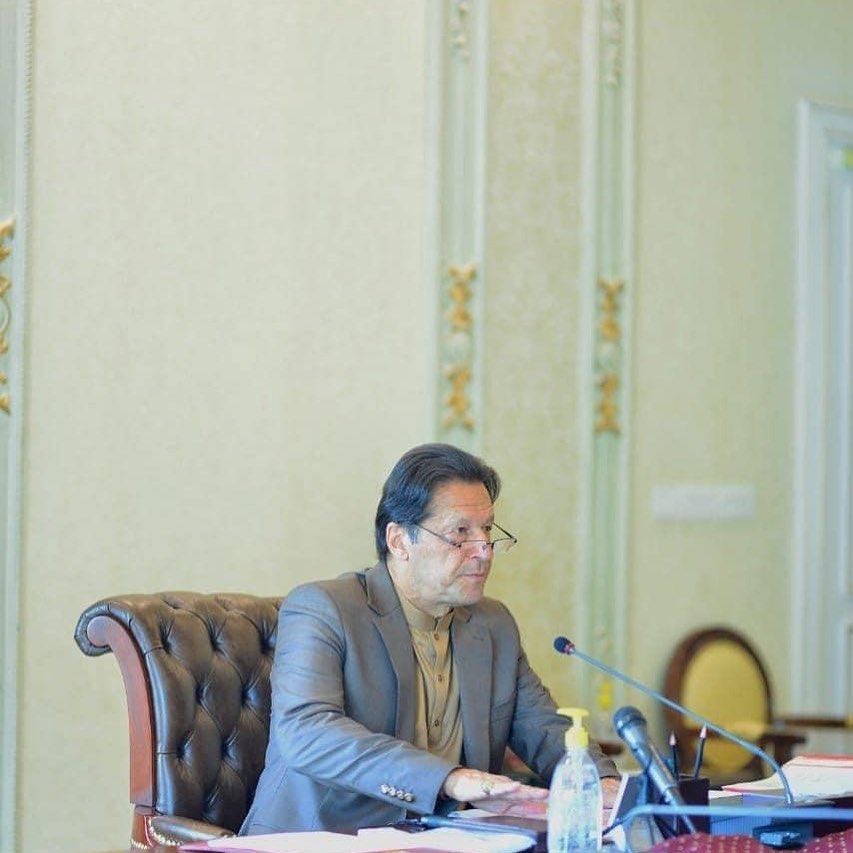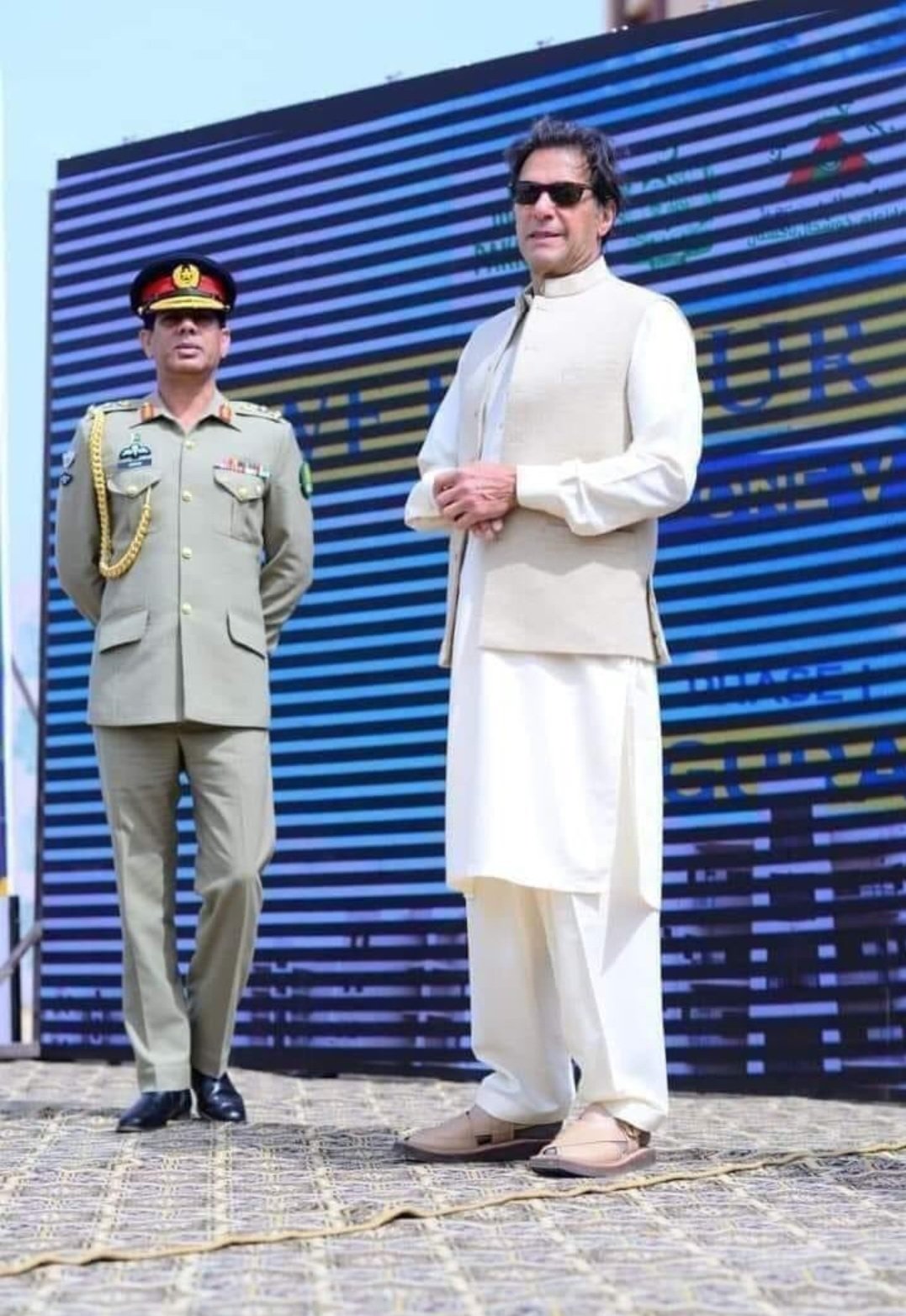
Twenty-two years ago, after the atomic bombings, Pakistan became the first nuclear power in the Muslim world and the seventh in the world. The atomic bombings were carried out because India had endangered the security of the region by carrying out three bomb blasts in Pokhara on May 11, 1998.
After the nuclear blast by the Indian leadership, a series of dangerous threats to Pakistan also started. On the one hand, India was preparing to attack Pakistan’s nuclear laboratories with the help of threats and Israel, on the other hand, Western countries were trying to prevent Pakistan from conducting a nuclear test by threatening sanctions.
The then US President Bill Clinton also called five times and advised the then Prime Minister not to carry out a nuclear explosion and in return offered tens of millions of dollars in aid. However, despite international pressure, on May 28, five nuclear explosions were ordered and nuclear tests were carried out in the mountains of Chaghi to the echo of the slogan Takbir.
background
Dr. Abdul Qadir, the creator of Pakistan’s nuclear program, wrote a letter to Prime Minister Zulfiqar Ali Bhutto in 1974 offering to work on the nuclear program, and in the same year the process of uranium enrichment began at Kahuta Laboratories. Pakistani scientists continue nuclear program despite extremely difficult conditions and make the country one of the most advanced nuclear-capable countries
According to a report, Pakistan currently has more than 100 nuclear warheads. Pakistan’s nuclear program continues to grow rapidly despite intense international pressure, and Pakistan adds ten new atomic bombs to its arsenal each year.
After the Indo-US nuclear deal, Pakistan has signed a similar agreement with China. Nuclear power plants are also being built in the country with the help of China, while two new plutonium-producing nuclear reactors have also been completed near Khushab. Another nuclear plant is under construction in Khushab, which will further increase the country’s ability to build nuclear weapons.
On the one hand, these nuclear bombs are ensuring the dignified integrity of Pakistan, a rival to a militant country like India. But due to the development and protection of this most expensive weapon, Pakistan has not been able to achieve the goals of economic development that it should have achieved so far. In some areas, Pakistan has even fallen behind where it was.
Pakistan’s nuclear program has been the target of international conspiracies and criticism since day one.
Pakistan’s nuclear power does not go unnoticed by many world powers and that is why after some time a regular opposition campaign is launched.
It is the duty of the government and the entire nation to commemorate the historic nuclear test carried out by Pakistan on May 28, 1998. Today, Yom Takbir is being observed. On that day, Pakistan responded to India’s nuclear blasts by detonating five nuclear warheads in the Chaghi area of Balochistan.
Twenty-two years ago, after the atomic bombings, Pakistan became the first nuclear power in the Muslim world and the seventh in the world. The atomic bombings were carried out because India had endangered the security of the region by carrying out three bomb blasts in Pokhara on May 11, 1998.
After the nuclear blast by the Indian leadership, a series of dangerous threats to Pakistan also started. On the one hand, India was preparing to attack Pakistan’s nuclear laboratories with threats and with the help of Israel, on the other hand, the Western countries were trying to keep Pakistan out of the nuclear test by threatening sanctions.
The then US President Bill Clinton also called five times and advised the then Prime Minister not to carry out a nuclear explosion while millions of dollars in aid was offered in return. However, despite international pressure, the government ordered five nuclear explosions on May 28 and nuclear tests were carried out in the Chaghi mountains to the echo of the slogan Takbir.
background
Dr. Abdul Qadir, the creator of Pakistan’s nuclear program, wrote a letter to Prime Minister Zulfiqar Ali Bhutto in 1974, offering to work on the nuclear program, and the same year began the process of uranium enrichment at Kahuta Laboratories. Pakistani scientists continued their nuclear program despite extremely difficult circumstances and made the country one of the most advanced nuclear-capable countries in the world.
According to a report, Pakistan currently has more than 100 nuclear warheads. Pakistan’s nuclear program continues to grow rapidly despite intense international pressure, and Pakistan adds ten new atomic bombs to its arsenal each year.
After the Indo-US nuclear deal, Pakistan has signed a similar agreement with China. Nuclear power plants are also being built in the country with the cooperation of China, while two new plutonium-producing nuclear reactors have also been completed near Khushab. Another nuclear plant is under construction in Khushab, which is sure to further increase the country’s ability to build nuclear weapons.
On the one hand, these nuclear bombs are ensuring the dignified integrity of Pakistan, a rival to a militant country like India.




